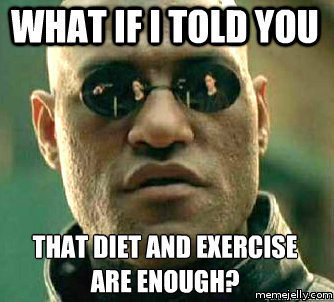This post is another that's mostly for personal reference (and amusement). I've tried to put silly pictures so it's "fun" AND "educational". Notes are compiled from Roache's Introductory Clinical Pharmocolgy, supplemented with my own nursing knowledge (and wikipedia).
If you notice any errors, please bring them to my attention.
(These are drugs that make your blood pressure decrease)
Video On Antihypertensive Therapy-More Detailed Explanation
- Diuretics:
- Hydrocholothiazide (Lasix), Bumetanide (Bumex), Mannitol (Osmitrol), Spironolactone, Acetazolamide (Diamox)
- Lower the volume of blood circulating in the blood vessels (by making you pee out water and electrolytes).
- Beta-Adrenergic Blockers:
- Atenolol (Tenormin), Metoprolol (Lopressor), Acebutolol (Sectral) and Propranolol (Inderal)
- Block epinephrine receptor sites (decreasing stimulation of sympathetic "fight-or-flight" nervous system). It makes your heart slow down and your arteries dilate
(which is weird, because beta receptor activation makes your arteries dilate anyways)it's kind of like telling the cells in your heart, kidney etc. to chill-out.
- Calcium Channel Blocker
- Blocks calcium from causing contraction/constriction of smooth muscle (so our arteries don't constrict)
- ACE Inhibitors:
- Benazepril (Lotensin), Captopril (Capoten), Enalapril (Vasotec), Lisinopril (Zestril), Quinapril (Accupril), Ramipril (Altace).
- Prevent/inhibit the activity of an enzyme that is involved in the synthesis of a potent hormonal constrictor.
- Angiotensen II Receptor Antagonists
- (ARBs) Losartan (Cozzar), Valsartan (Diovan)
- Block the potent hormonal vasoconstrictor from it's receptor site
- Human B type Natiuretic Peptides (B-N-P...just like the lab!) :
- Hormone (made in the heart) that dilates veins and arteries (We can make it synthetically as a drug too?)
- Alpha Adrenergic Antagonist
- Clonidine (Catapres), Methyldopa, Guanfacine
- Blocks receptor norepinephrine (blocking the "fight-or-flight" response that causes vasoconstriction)
(For more info on the difference between alpha and beta receptors: Click Here)
- Direct Acting Periperal Vasodilators
- Hydralazine (Apresoline), Nitroprusside (Nitropress), Minoxdil (Loniten)
- Activates Potassium Channels in the peripheral vessels, preventing calcium from making the vessel contract.
Anti-Arrhythmic Drugs-
There are several different subtypes of drug this classification, and each of them has a different mechanism of action, but but all of them suppress irregular heart
rhythms. In general they slow conduction and keep the electrochemical status of the cellular membrane so that it is only stimulated by the dominant pacemaker (and not irritable foci)
(Watch these videos to learn about
voltage gated channels)
- Class IA Drugs
- Drug examples: Disopyramide (Norpace), Procainamide (Procanbid), Quinidine (Quinaglute)
- Class IB Drugs
- Lidocaine (Xylocain)
- Class IC Drugs
- Flecainide (Tambocor) and Propafenone (Rythmol)
- Acebutolol (Sectral) and Propranolol (Inderal)
- (Beta Blockers are anti-hypertensive and anti-arrhythmia :P). As I discussed above, these drugs block receptors for catacholamines like epinephrine and norepinephrine, decreasing sympathetic stimulation. They also promote the release of another hormone in the kidneys: renin (which lowers heart rate and blood pressure, also has a membrane stabilizing effect), blocks calcium channels, and also blocks catecholamine caused dysrhythmias.
- Class III: Potassium Channel Blockers

- Amiodarone (Cordarone), ibutilide (Covert).
- Interfere with potassium conduction at a specific phase in the action potential cycle (see video)
- Class IV: Calcium Channel Blockers
- Diltazem (Cardizem), Amlodipine (Norvasc), Nifedipine (Aladat, Procardia), Verapamil (Calan)
- Interfere with calcium conduction at a specific phase in the action potential (see video)
Cardiotonic Drugs-
Just like healthy skeletal muscles,
healthy heart muscle has a certain degree of firmness-even when it is
relaxing.
Toned muscles are stronger, they
contract more effectively, and they are less likely to experience
fatigue when put under the stress of physical activity.
Toned Cardiotonic drugs help flabby
heart muscle get toned.
Improving cardiac output, and making it more effective as an
organ.
The Cardiotonic Drug Digoxin does this
by slowing the heart down.
(Negative Chronotropic Activity)
and slowing the heart's electrical
conduction through AV node
(Positive Intropic Activity)
(You'd think it would be the other way
around, that more electrical activity would mean a more toned heart,
but that's not the case, especially when the electrical activity is
not as organized. (A. Fib) An organized rhythm with enough force of
contraction to deliver optimal cardiac output is more important then
a fast heart rate. Coincidentally, endurance athletes have a lower
heart rate for the very same reason: their hearts are toned enough to
deliver an adequate cardiac output with fewer heartbeats).
If you are giving a Cardiotonic it's
important to remember to check the patient's heart rate before
administering and to not give the drug if the patient's heart rate is
already bradycardic.
Just for fun, did you know where
digoxin comes from?
It's a (poisonous) flower!!!
You know what it does? It makes your
heart beat slower (gasp!)
And it is POTENT! The concentration of
most other drugs is measured in milligrams, the concentration of
digoxin is measured in micrograms.
If the patient has only just started
taking the drug, or if s/he has kidney problems, it's important to
monitor for digoxin toxicity:
On the EKG:
In Labs:
(Elevated serum digoxin levels)
And other symptoms like bradicardia, drowsy, nausea, vomiting...
If the patient has a massive digoxin
toxicity s/he will need the digoxin antidote-
Digoxin immune fab (AKA Digibind).
Here's a website I thought was cool: http://abcmaps.tumblr.com/page/2







































